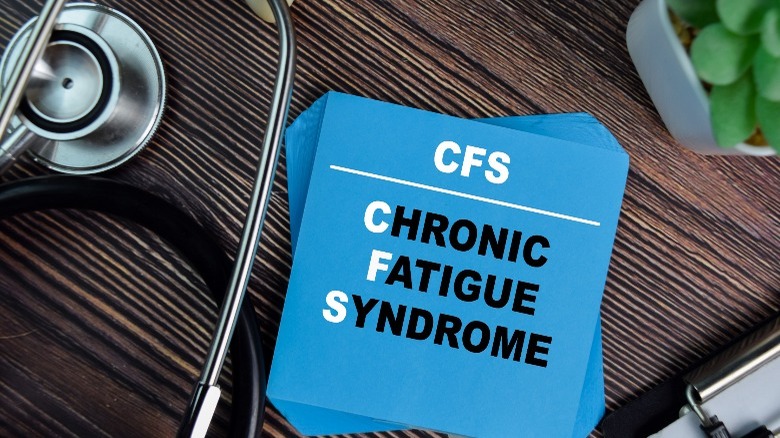What Does It Feel Like When You Have Chronic Fatigue Syndrome?
Short-term fatigue, or a reduced ability to engage in mental or physical activity, is a typical experience that everyone goes through at one time or another (per Washington Post). Harvard Health Publishing says that everyone goes through short periods of time where they feel low on energy — a day or week, for example. In fact, according to a 2022 article published in the British Medical Journal Best Practice, fatigue is a popular complaint with an estimated 4.3% to 21.9% prevalence in the global population.
There are often logical, immediate explanations for short-term fatigue and solutions. Maybe you had a bad night's sleep, have an extra stressful work week, or have been eating poorly (per Medical News Today). Getting better sleep, managing stress, or improving diet might relieve these causes of your short-term fatigue. However, long-term fatigue that prevents you from doing your regular day-to-day activities — and even keeps you bedridden — could be a sign of something more serious (via MedlinePlus).
Chronic fatigue: Signs, symptoms, and management
If your fatigue is severe and persists for longer than six months (and is not explained by an underlying medical condition), then you may have myalgic encephalomyelitis, or chronic fatigue syndrome (ME/CFS), says Mayo Clinic. According to the Centers for Disease Control and Prevention, chronic fatigue syndrome affects upwards of 2.5 million Americans. It is not easy to diagnose because there is no official test to diagnose it; symptoms also appear similar to a number of other conditions. For example, chronic fatigue syndrome shares a similar set of symptoms to long COVID.
Outside of an inability to perform regular activities, there are many symptoms of chronic fatigue syndrome. MedlinePlus says that common symptoms of chronic fatigue syndrome include brain fog, dizziness, poor sleep, extreme fatigue that does not improve with rest, pain, and a lack of focus. Further, people with chronic fatigue syndrome may experience something called post-exertional malaise, which is described as a "crash" that occurs after performing an activity and can last for weeks (per Centers for Disease Control and Prevention). Other symptoms may include light sensitivity, headache, swollen lymph nodes, and depression (via Johns Hopkins Medical). While there is no cure for chronic fatigue syndrome, you can manage symptoms by practicing good sleep hygiene, or by learning how to become efficient with your energy to better manage crashes.


